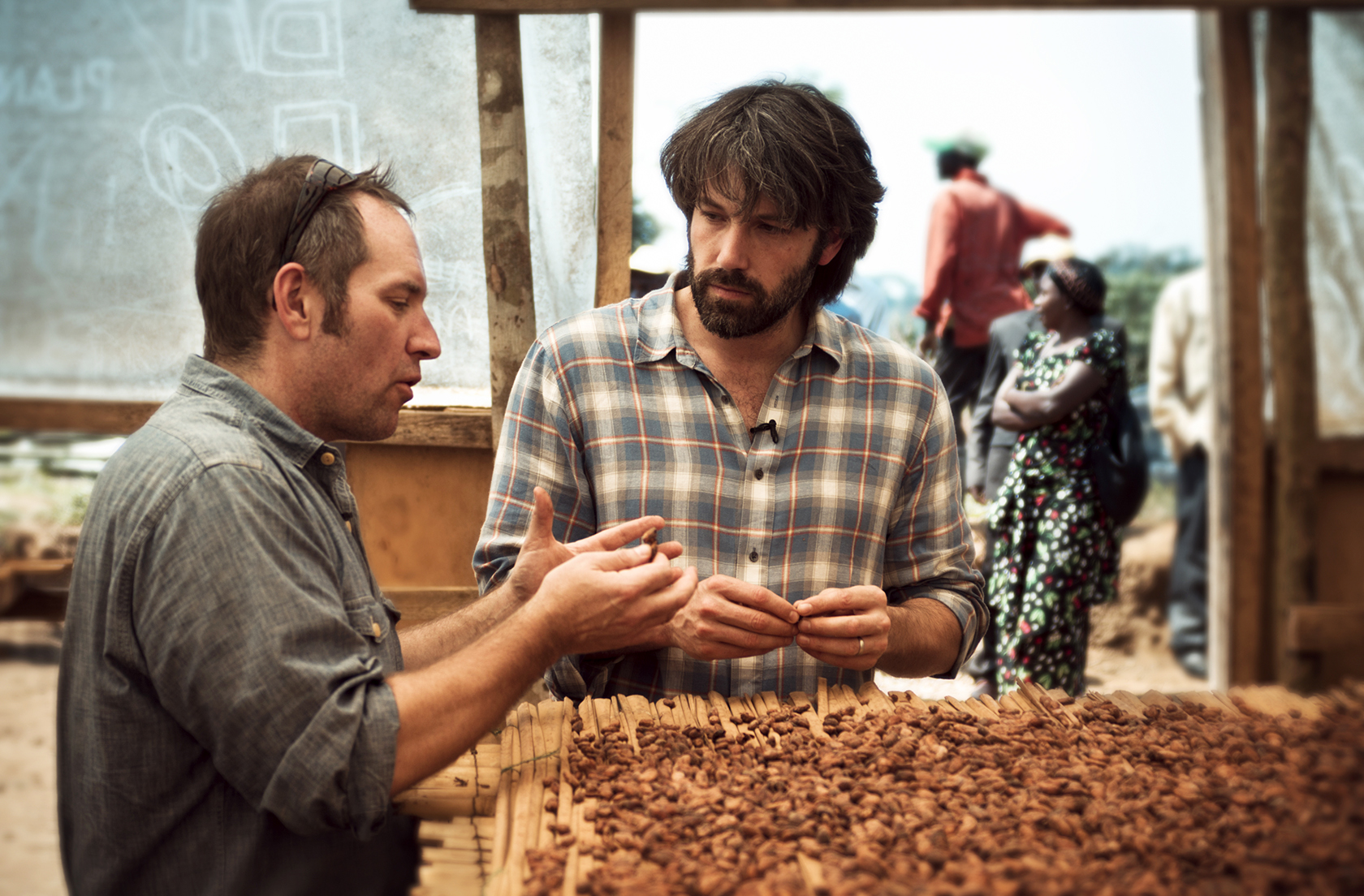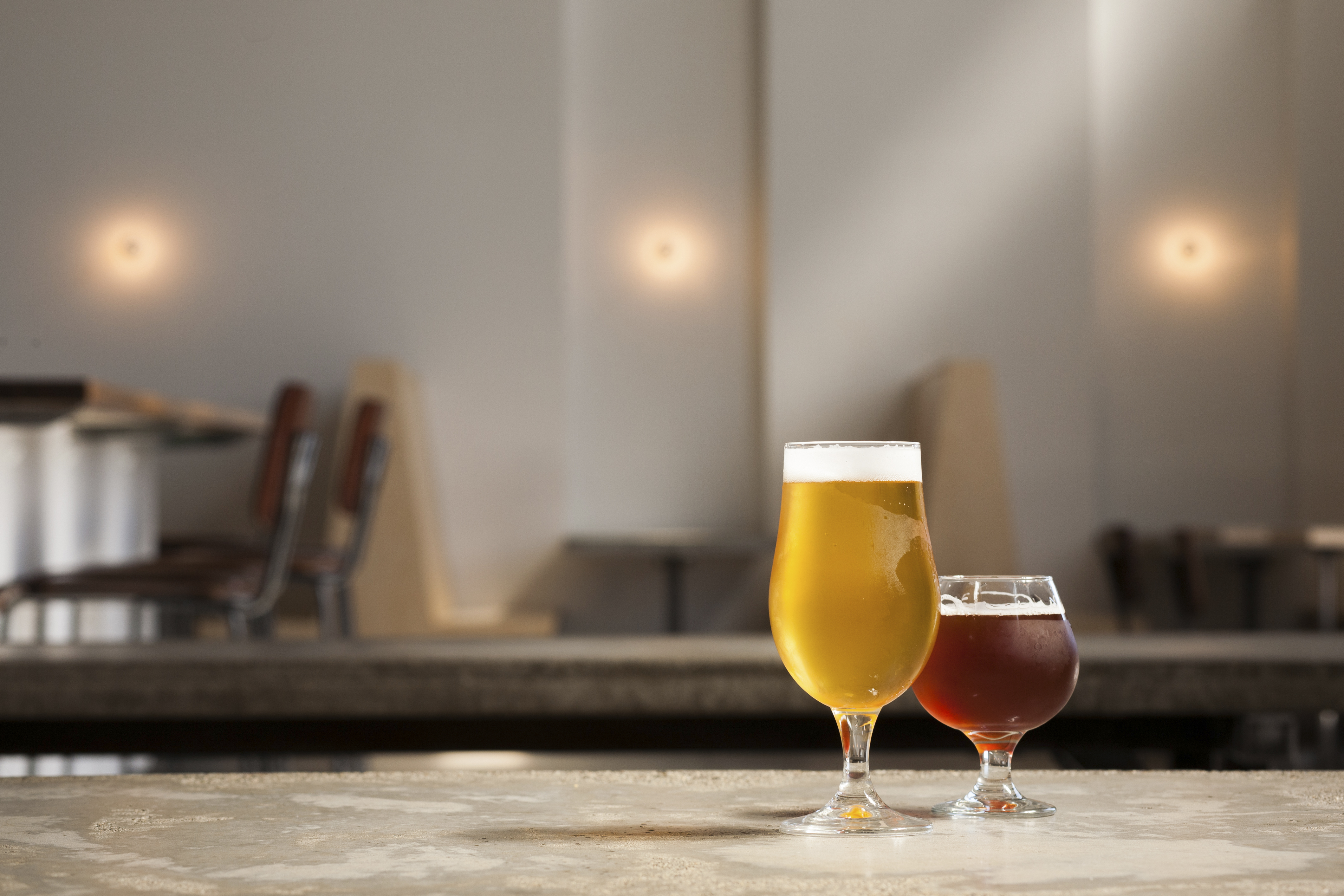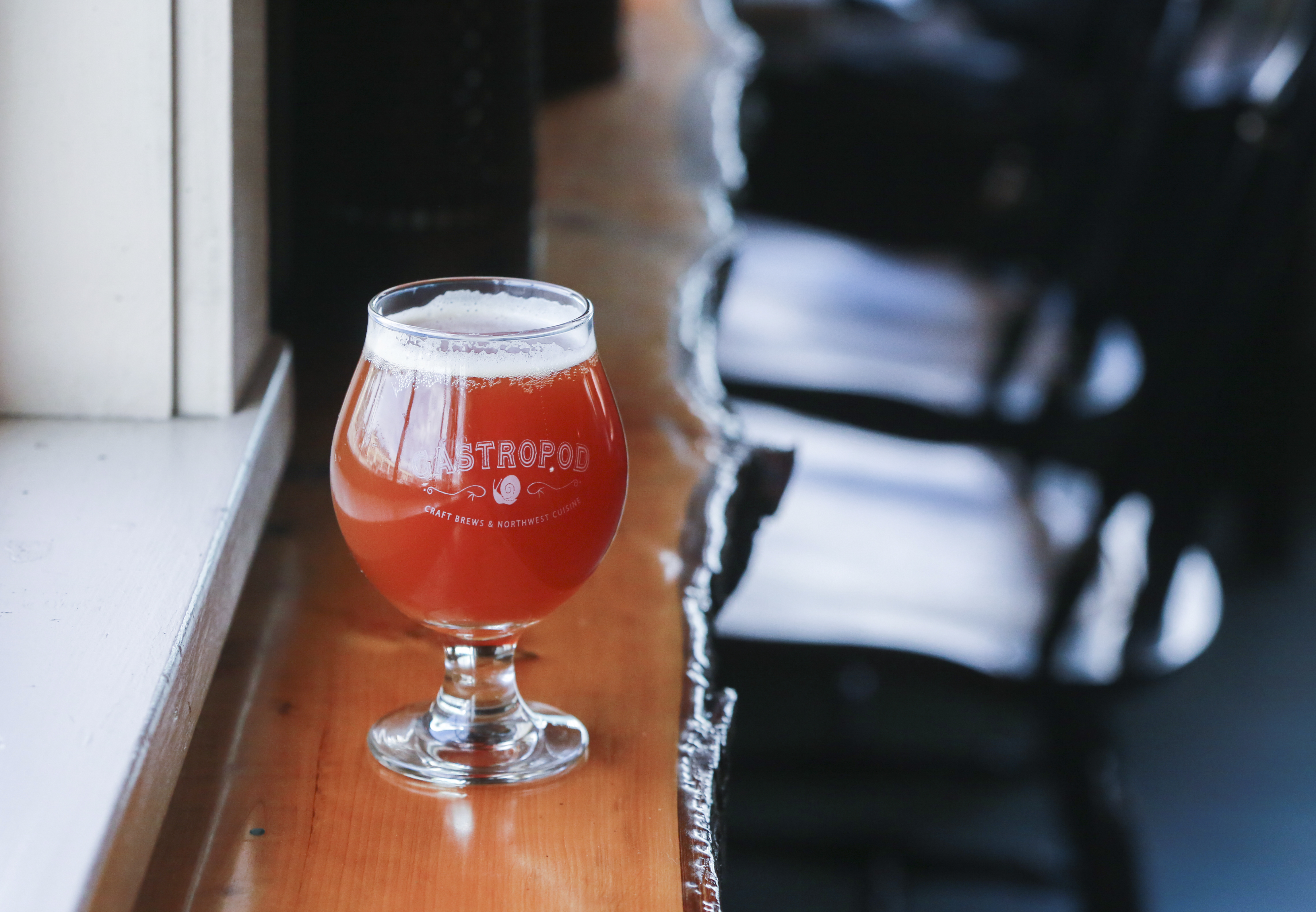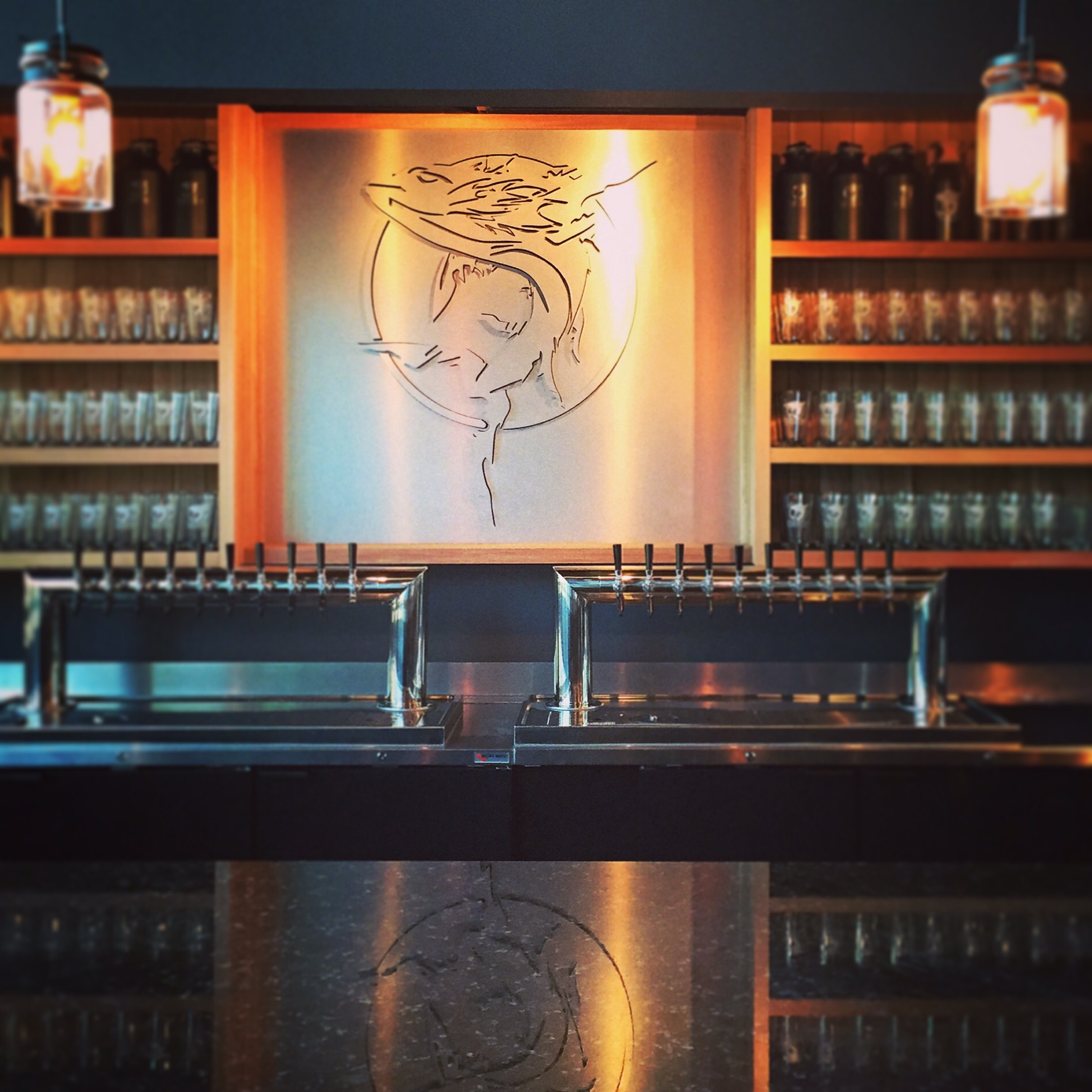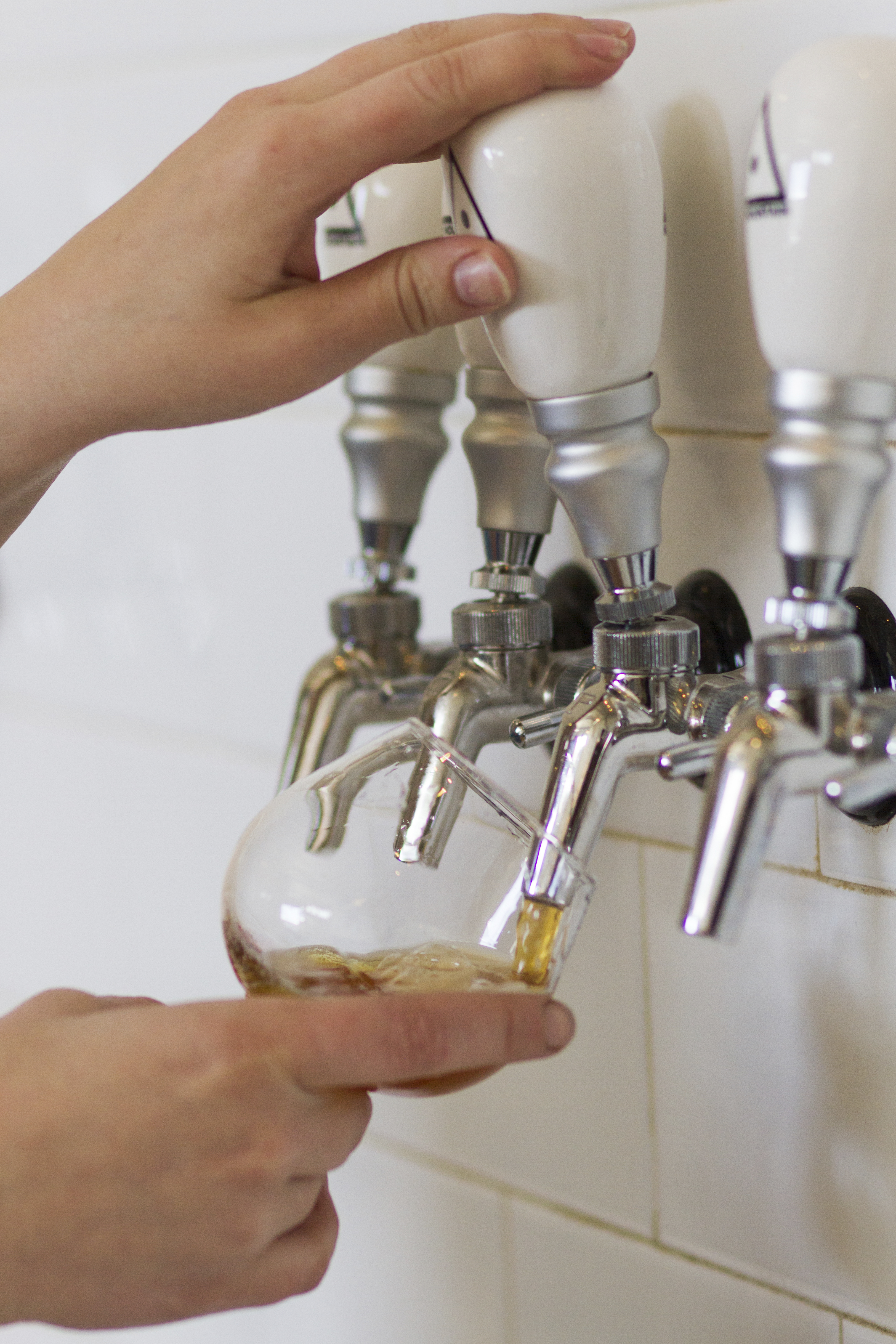Joe
Whinney has lost count of how many times he’s been to the Democratic Republic of Congo (DRC). The Theo Chocolate founder and CEO estimates he’s set foot in the country or near it—traveling to the DRC’s border with Uganda—eight to 10 times. “But I’d have to check my passport,” he says.
Theo’s Congolese sourcing made national news last month when Ben Affleck mentioned the company while testifying before the U.S. Senate Committee on Foreign Relations. Affleck’s Eastern Congo Initiative (ECI), a nonprofit dedicated to advocating on behalf of this embattled region, is partnering with Theo Chocolate to source DRC-grown cocoa.
It’s all part of Theo’s “triple bottom line”—instead of making decisions based solely on the company’s need to make a profit, Theo is also committed to ethical sourcing, environmental sustainability practices, and social responsibility. The Fremont-based chocolate shop and factory claims the status of North America’s first bean-to-bar chocolate maker, with Organic, Fair Trade, Fair for Life, and Non-GMO certifications. Rather than getting the cheapest price possible at the expense of farmers in developing countries, with no concern for how the beans are grown, Theo pays fair wages for higher-quality cocoa grown sustainably, “exceeding the premiums for organic and fair-trade cocoa by more than five times” the world market price, according to their website. And that makes for a better product, too.
“I believe that you can’t make a beautiful product unless everyone does well as a result of the sourcing and the making of it,” Whinney says. “And we find that through our commitment to the producers that we get a higher-quality product. We provide technical assistance to make sure the farmers can improve quality. They get a better price for higher-quality cocoa so we can make a better product, and we commit to them long-term. As a result, they are more willing to invest in their farms and their communities. It’s just good business sense.”
But the partnership with Affleck’s ECI wasn’t love at first sight. “I was like, ‘You’ve gotta be kidding me,’ ” he says. But Whinney changed his mind after Affleck visited the company’s Fremont factory in 2010. “He was articulate and intelligent and committed and impressive. He really knew his stuff and he really cared.”
Whinney had been looking to develop supply lines in Africa, in large part because Theo sought a more balanced flavor in its chocolate. So the timing of Affleck’s visit was lucky. “From a flavor standpoint, cocoa from the Caribbean and Latin America is much more sour and fruity. Africa’s is more nutty, cocoa-y,” he says. A region’s soil and climate affect a cocoa bean’s flavor profile, similar to a wine’s terroir.
The DRC proved to be the answer, both in terms of the beans’ quality and the farmers’ willingness to take on the opportunity. “The people there were motivated and very intent on creating economic opportunities for themselves,” Whinney says.
A few passport stamps later, Theo began importing its first Congolese beans. In 2012, Theo imported 20 metric tons of organic, fair-trade-certified cocoa from eastern DRC farms; in 2013, 340 metric tons. This year, they expect to jump to 640 tons. That’s a relatively fast evolution from idea to supply chain to production, but working with farmers in a war-torn region has not been without challenges.
The DRC is a tough place to do business. The country has been fraught with poverty, disease, and violence since 1998, and over 5 million people have died as a result. The ongoing conflict with terrorist militias has displaced some 1.3 million people. The eastern DRC, where Affleck’s ECI works and where Theo’s cocoa farmers live, is the epicenter.
In towns throughout this region, there’s a sense of impermanence, that one’s entire life could be uprooted at any time, Whinney says. Very few children are in school. A water bottle becomes a coveted toy. Tension and unease are palpable. Whinney said he heard chilling stories of militias and rebel groups turning entire villages into ghost towns, of farmers fleeing their cocoa trees and taking cover in the bush. Of unspeakable violence and tragedy.
A recent visit to the DRC with Affleck and Howard Buffett was the only time, Whinney says, that he’s ever felt unsafe in his decades of travel in developing countries. The group’s convoy was bookended by United Nations armored gun trucks, traveling deserted roads to villages with only one way in or out. “It was like, wow, anything could happen at any time, my whole life could just be upside down in a moment, and that’s how people live there,” he says. “No wonder it’s tense.”
Theo is currently sourcing its Congolese cocoa from the Watalinga area, near the Ugandan border, an area largely thought to be safe. With no gold mines or other resources nearby, rebels have little interest in these far-flung communities. Theo received its first shipment of Watalinga-grown beans last year.
But life in Watalinga was thrown into chaos starting last July, when the ADF-Nalu militia, a group on the U.S.’ list of terrorist organizations since 2001, emerged, killing seven village chiefs and causing some 150,000 villagers to flee into the bush or into refugee camps in Uganda—including Theo’s partnering cocoa farmers. The UN has since helped restore order, but for several months, farmers were struggling to tend their cocoa trees.
This is where Whinney gets misty-eyed, struggling to speak about the people he’s befriended in this war-torn country. “During this time, the farmers had camped out along the border. They had been going back to their farms during the day. They’re staying because they have an opportunity there that they didn’t have before,” he says.
When Whinney visits farmers, he helps them understand what it is they’re growing, creating an attachment to their work that isn’t always present in a region where so little lasts. Many cocoa farmers even have no idea what their product is used for, having never seen or tasted a chocolate bar. Whinney remembers bringing a Theo bar to one of the Congolese farmers whose beans were used to make it. “He was like, ‘This is incredible. We have to bring the cocoa up off the ground and dry it and keep it safe and clean,’ and he’s really getting into it,” Whinney says. “He felt a part of this and it was important to him, and so I think that sense of purpose and mutuality is an important part of the business also.”
Theo has big plans for its future work in the DRC with ECI and with export partner ESCO. They’re talking about farmer training and resources, and perhaps increasing its import levels. Today, Theo sources half its beans from the DRC; any given bar or confection is made with 50 percent Congolese beans. And they’ve released two bars made with 100 percent Congolese beans and vanilla, with a portion of the purchase price going to ECI: Vanilla Nib and Coffee & Cream, which uses Caffe Vita–roasted coffee beans also from the DRC.
Theo has not chosen an easy way to do business, but the right thing isn’t always the easy thing, says Vice President of Sales and Marketing Debra Music. “There are much less risky places for us to work,” she says. “But it’s good business because we’re cultivating a meaningful supply chain of a high-quality product while having a really beneficial impact in a part of the world that desperately needs it. It’s this crazy, beautiful, exhausting endeavor.”

